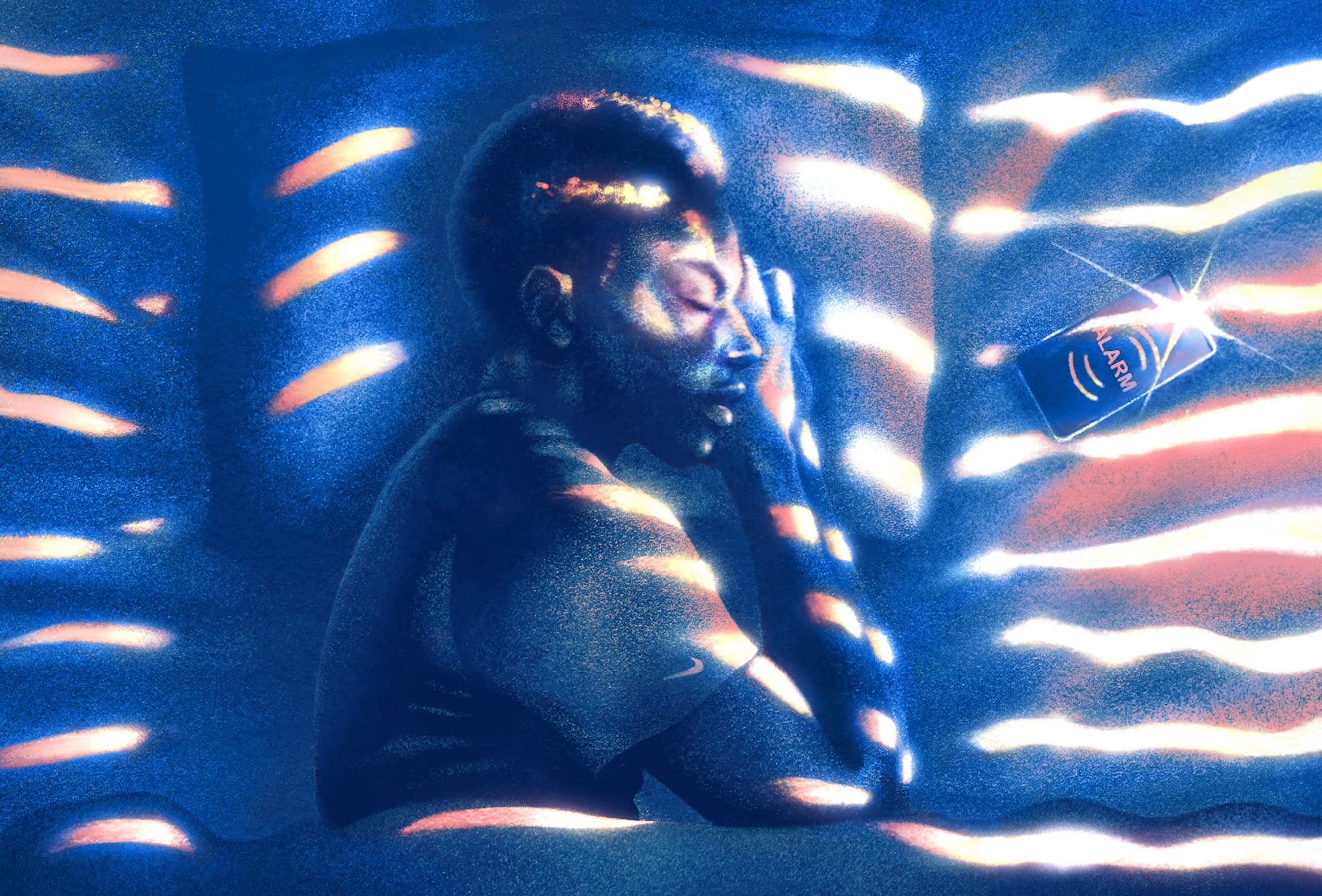3 Signs You're Definitely Oversleeping
Coaching
Find out whether you're getting the right amount of Zs at the right time so you can stay well and well-rested.

There's nothing like a good night's sleep to make you feel ready to seize the day, no coffee necessary. For most of us, that means logging at least seven hours a night, though others need more, says Dr Cheri D. Mah, MD, a physician scientist at the UCSF Human Performance Center and a Nike Performance Council member who specialises in sleep and performance in elite athletes.
The not-so-surprising reality is that most of us aren't getting enough sleep most nights, says Mah. But it's not just the total time you clock up that affects your mood, health and fitness. It's also when you get those seven-or-more hours, she adds. To see whether your sleep routine needs a reboot, first determine whether you experience any of these signs:
- You wake up feeling groggy and sluggish.
You might think that feeling tired and blah even an hour after waking must mean you need more sleep, but that's not always the case. Our bodies are governed by a circadian rhythm, or an internal body clock that controls when we feel sharp or sleepy, says Mariana G. Figueiro, PhD, a professor and centre director of the department of population health science and policy at the Icahn School of Medicine at Mount Sinai. While your personal clock might vary from, for example, your best friend's on a minute-to-minute or even hour-to-hour schedule, everyone's clock ticks according to the sun—daylight stimulates wakefulness, and darkness brings sleepiness.
The thing is, "the more you go towards the middle of the day, the less effective that light is at keeping you in sync with your watch", says Figueiro. In other words, if you sleep beyond the morning light, you may feel more lethargic and out of sync with sunrise and sunset even if you hit your seven hours for the night, says Figueiro.
- You're dehydrated.
You're obviously not drinking water when you're asleep, but you also lose fluids as you breathe or snore during sleep, according to the National Sleep Foundation. Plus, the later you wake up in the day, the fewer hours you have to hydrate, notes Mah. If you're dehydrated, you might feel weak, dizzy, unrefreshed or just off your game. An easy way to tell is by doing a quick pee check. The darker yellow your pee, the more water you need to be drinking, per the Cleveland Clinic.
- You can't fall asleep at night.
People who get an ideal amount of sleep should conk out within 10 to 15 minutes most nights, says Figueiro. If it takes you closer to 30 minutes or longer and your routine has otherwise been pretty much the same (no extra stress, caffeine or naps), you could be dealing with a confused clock or a bit too much time in bed.
Sleepiness is influenced by a number of factors, including a balancing system within us formally known as "sleep drive" or "sleep pressure". It's low when you get up and grows throughout the day while you're awake, in part due to a chemical called adenosine that builds up in the brain and makes you feel drowsy. "When you oversleep, you aren't giving yourself time to accumulate enough sleep pressure throughout the day, so when it's time to fall asleep, you may end up not being able to", says Figueiro.
"The more you go towards the middle of the day, the less effective that light is at keeping you in sync with your watch".
Mariana G. Figueiro
PhD, Professor
Feel seen? The next step to sleep success is trying Mah's simple experiment to help you determine how much sleep you really need. On your next break or holiday (or whenever you can make your morning schedule flexible), set a consistent bedtime each night, turn off your alarm and see what time you naturally wake up. After several days in a row of this, you'll get a sense of how many hours you need to feel well-rested, explains Mah. (If you're suddenly sleeping more than usual—say, 10 hours a night—and especially if you're experiencing any other symptoms, chat with your doc to figure out what could be behind it, such as depression or another underlying medical condition, says Mah).
Once you know how much sleep you work best with, do everything you can to stick to a regular bedtime and wake time every day, says Mah. "Yo-yo sleeping", where you regularly get significantly more shut-eye on some days than others, can mess with your body clock and invite its own set of health issues, including high blood pressure and a feeling of constant jet lag. So unless you're hitting snooze on Saturday because you're making up for lost sleep, aka "sleep debt", after an exhausting week, or because you're feeling under the weather, sleeping in usually isn't what your body really needs.
One way to know for sure? If extra time under the covers isn't giving you more energy. "You don't want to go to bed late and wake up later just because you can, as that can throw off your clock", says Mah. Earlier bedtimes beat later wake times for the best-synced clock, but do what works for your schedule, she says.
Remember, sleep is supposed to help you recover, restore and reset for the day ahead. If it's not doing its job, maybe it's time to put it on a performance plan.
Words: Ronnie Howard
Illustration: Matt Williams

Take It Further
For more expert-backed guidance on recovery, as well as mindset, movement, nutrition and sleep, check out the Nike Training Club App.
Take It Further
For more expert-backed guidance on recovery, as well as mindset, movement, nutrition and sleep, check out the Nike Training Club App.